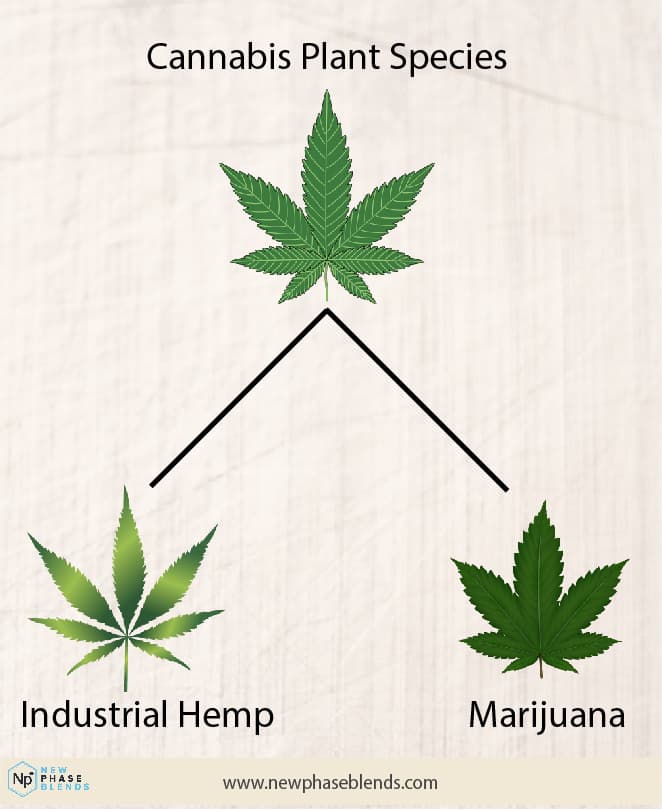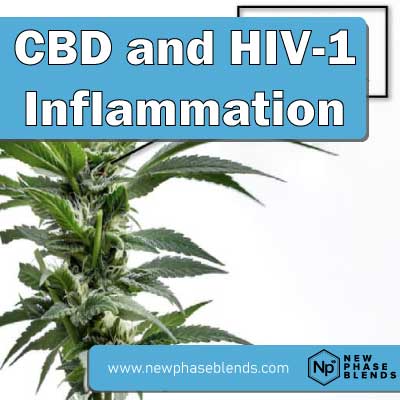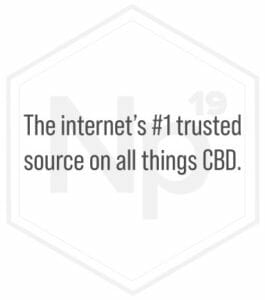Cannabidiol (CBD) has been a beacon of hope in the natural remedies industry, offering a plethora of health benefits that have captured the attention of both the medical community and the public. Starting with CBD’s anti-anxiety and chronic pain-controlling properties to its potential fatty acid binding proteins abilities, CBD has emerged as a versatile compound with a wide range of therapeutic applications. As research delves deeper into the pharmacological effects of CBD, we continue to uncover new and promising avenues where it can make a significant impact. One such area is the potential of CBD to alleviate inflammation in cells infected with HIV-1, a discovery that could revolutionize the management of HIV-related inflammation and its associated complications.
What Is HIV-1?
HIV-1, or Human Immunodeficiency Virus type 1, is a tiny germ that can make people sick. It’s so small you can’t see it with your eyes. When someone has HIV-1, it attacks their body’s special soldiers called immune cells. These soldiers help keep us healthy by fighting off germs.
When the HIV-1 virus enters the body, it starts to take over. Over time, it can weaken the immune system, making it hard for the body to fight off other infections and illnesses. This can lead to a condition called AIDS (Acquired Immunodeficiency Syndrome). People with AIDS can get very sick and have a hard time staying healthy.
HIV is traditionally treated using medicines called antiretroviral drugs that can help people with the virus live long and healthy lives. The only sure way to know you have HIV is to get tested for it.
Medical Cannabis, The Cannabis Plant, and CBD Oil
Many people often start by asking is CBD legal? to understand this, you need to know a bit more about what it is. CBD, or Cannabidiol, is a natural compound found in the cannabis sativa plant, which has historically been found helpful in treating pain. Unlike THC (tetrahydrocannabinol), CBD doesn’t make you feel “high.” Instead, it offers potential health benefits without the psychoactive effects.

CBD is typically extracted from the hemp variety of cannabis, which contains very low levels of THC, usually less than 0.3%. There are different methods to extract CBD from the plant, but the most common ones are CO2 extraction, ethanol extraction, and oil extraction. CO2 extraction is considered one of the cleanest methods, as it doesn’t leave harmful residues.
What sets CBD apart from medical cannabis (also known as medical marijuana) is its THC content. Medical cannabis contains varying levels of THC, the compound responsible for the well-known mind-altering effects.
In contrast, CBD products contain minimal or no THC, ensuring that users don’t experience the “high” associated with marijuana.
People use CBD for various reasons, such as managing pain, reducing anxiety and stress, alleviating seizures, and improving sleep. It comes in various forms, including oils, capsules, creams, and edibles, making it accessible and convenient for everyone regardless of their personal circumstances.
CBD and Cancer
The journey of CBD in the fight against cancer has been marked by encouraging findings. CBD’s anti-inflammatory properties have been particularly beneficial for cancer patients, offering relief from the chronic inflammation that often accompanies this disease. Inflammation is not only a symptom of cancer but can also contribute to its progression, making the anti-inflammatory action of CBD a valuable asset in cancer care.
Studies have shown that CBD can modulate the inflammatory response by influencing various pathways and signaling molecules within the body. By doing so, it helps reduce the production of inflammatory cytokines, which are proteins that can exacerbate cancer-related inflammation. Moreover, CBD’s ability to induce apoptosis, or programmed cell death, in certain cancer cell lines further highlights its potential as an adjunct therapy in cancer treatment.
CBD’s Role in HIV-1 Infection
The recent study on CBD’s effects on HIV-1 infected cells has shed light on its potential to curb inflammation at the cellular level. Human immunodeficiency virus (HIV) infection is characterized by a chronic inflammation, which can lead to a host of complications if not managed effectively. The study focused on the anti-inflammatory effects of CBD on human microglial cells infected with HIV, comparing its efficacy with that of Δ9-tetrahydrocannabinol (THC), another well-known cannabinoid.
The findings were promising CBD significantly reduced the production of a number of inflammatory cytokines and chemokines, like MIF, SERPIN E1, IL-6, IL-8, and GM-CSF, etc. This reduction was more pronounced than that observed with THC treatment. Furthermore, CBD was shown to deactivate caspase 1 and reduce the expression of the NLRP3 gene, both of which play critical roles in the inflammasome pathway—a complex of proteins involved in the inflammatory response.
Interestingly, CBD also reduced HIV expression, suggesting that it may have direct antiviral effects in addition to its anti-inflammatory properties. This dual action of CBD could be particularly beneficial in managing HIV-1 infection, where controlling both the virus and the inflammation it causes is crucial for the well-being of patients.
Summary
The exploration of full spectrum CBD many therapeutic potential in the context of HIV-1 infection is a testament to the compound’s multifaceted nature. By reducing inflammation in infected cells, CBD may offer a new horizon for patients grappling with the chronic inflammation associated with HIV.
While more research is needed to fully understand the mechanisms behind CBD’s effects and to translate these findings into clinical applications, the current evidence is a beacon of hope for those seeking alternative treatments.
As we continue to unravel the mysteries of CBD, its role in enhancing the quality of life for individuals with HIV-1 could become a significant chapter in the annals of medical science. However, there is still a great deal of research needed to solidify these findings and then translate them into a viable long-term treatment for patients. However, this is a promising start.












